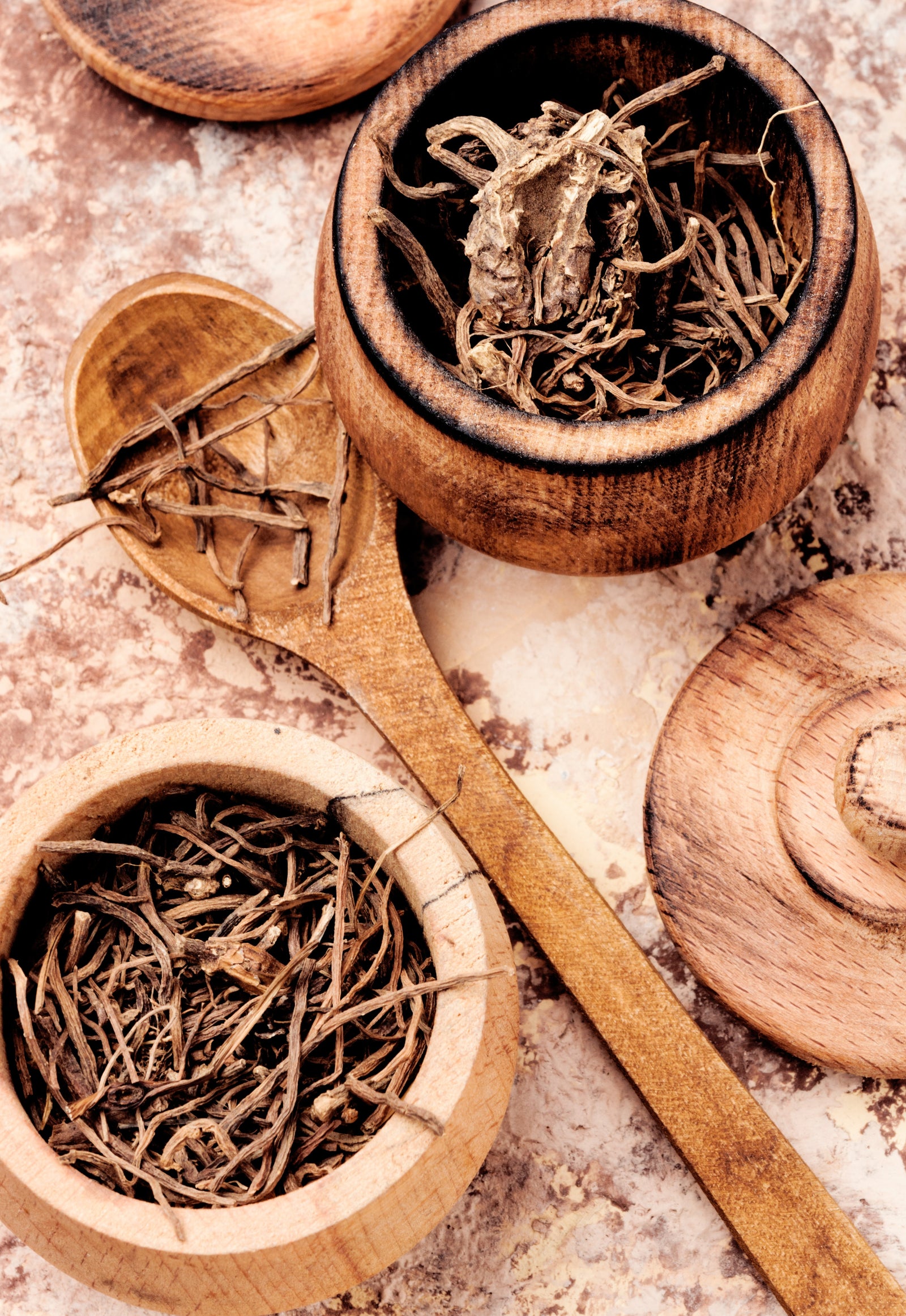Valerian root - a safe and effective herbal sleep aid

Valerian root has been used in herbal medicine for years. It is a source of essential oils, which include monoterpenes, valeranone, valerenol, valerenic acid and acetoxyvalerenic acid. Valerian's characteristic and intense smell is due to, among others, valeric and isovaleric acid esters.
The active compounds present in valerian primarily affect the nervous system, which results in reducing nervous tension, calming and alleviating the symptoms of stress. Interestingly, valerian and its calming properties were already known in ancient Greece and Rome.
What other properties does it have?
Valerian is helpful in sleep disorders. It facilitates falling asleep and also improves the length and quality of sleep. This effect is due to the combination of various compounds present in valerian, including valeric acid and linarin.
It relieves anxiety, so it can be a natural alternative to some anti-anxiety medications that cause dangerous side effects,
Some mental health specialists recommend valerian for people with depression due to its calming effect,
It helps combat the negative effects of stress and increases resistance to stressful situations.
Taking valerian is also recommended at times that require focus and concentration,
It is also used to combat the symptoms of menopause, especially troublesome hot flashes and insomnia,
The active compounds of valerian also relieve the symptoms of premenstrual syndrome and reduce menstrual pain.
Valerian – contraindications
Valerian, like many other herbs with medicinal properties, may interact with certain medications.
In some cases, it is necessary to discontinue its use to avoid undesirable effects. These include anti-anxiety drugs, sedatives, and drugs used to treat diseases of the nervous system. Valerian, which has similar properties, may enhance the effects of these drugs and cause excessive fatigue, drowsiness, and slow down breathing.
Due to its sleep-inducing effect, valerian is not recommended for people driving or operating machinery. A break of at least two hours should be maintained between taking valerian and driving or operating machinery.
Valerian should not be combined with alcohol, muscle relaxants, antihistamines, liver medications, and antifungals.
In addition, it is not recommended to consume valerian and other herbs with a sedative effect, such as lemon balm or chamomile at the same time.
Valerian should also be stopped at least 2 weeks before a planned surgery. The plant calms the nervous system, so it can interact with anesthetics.




